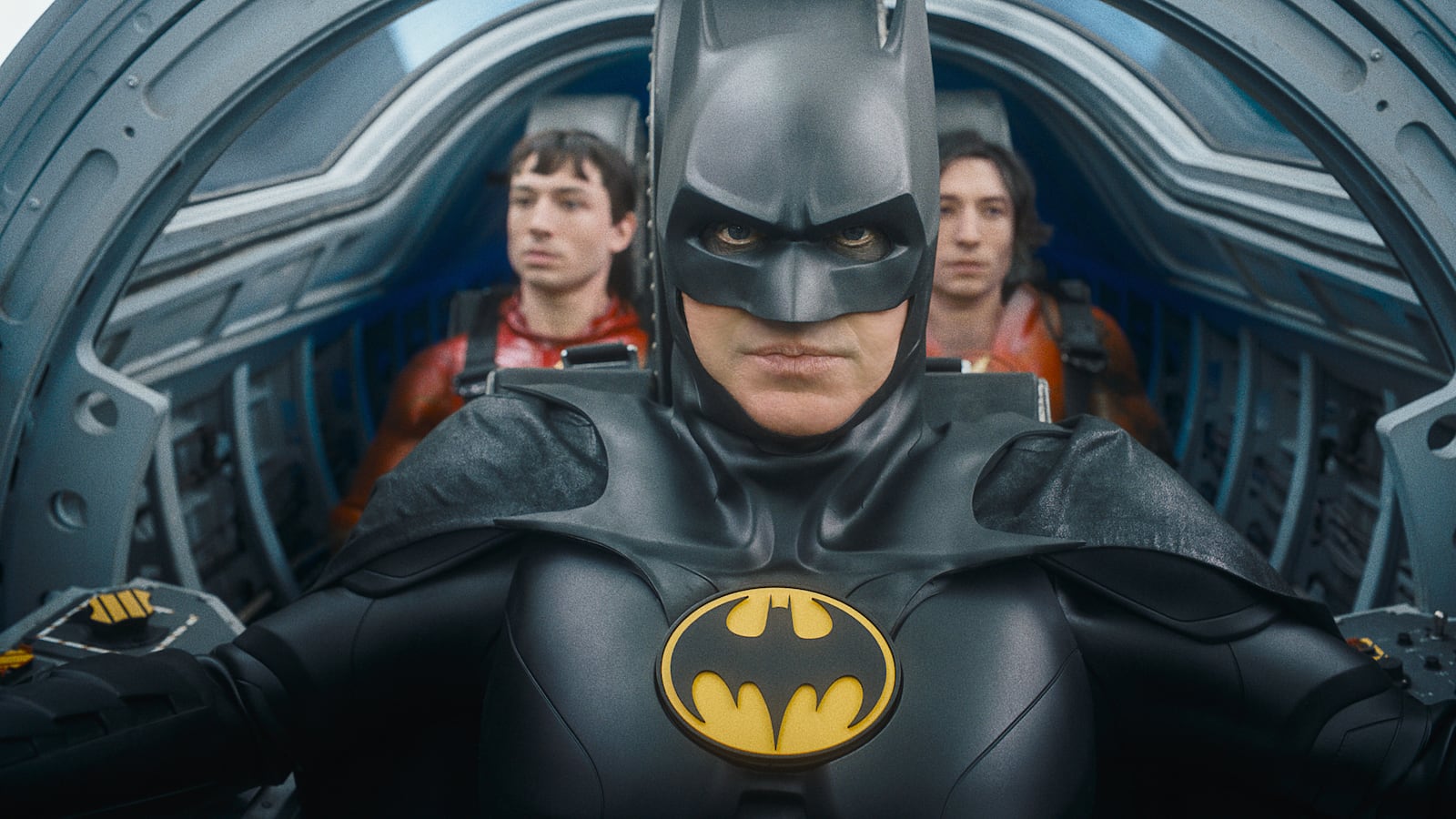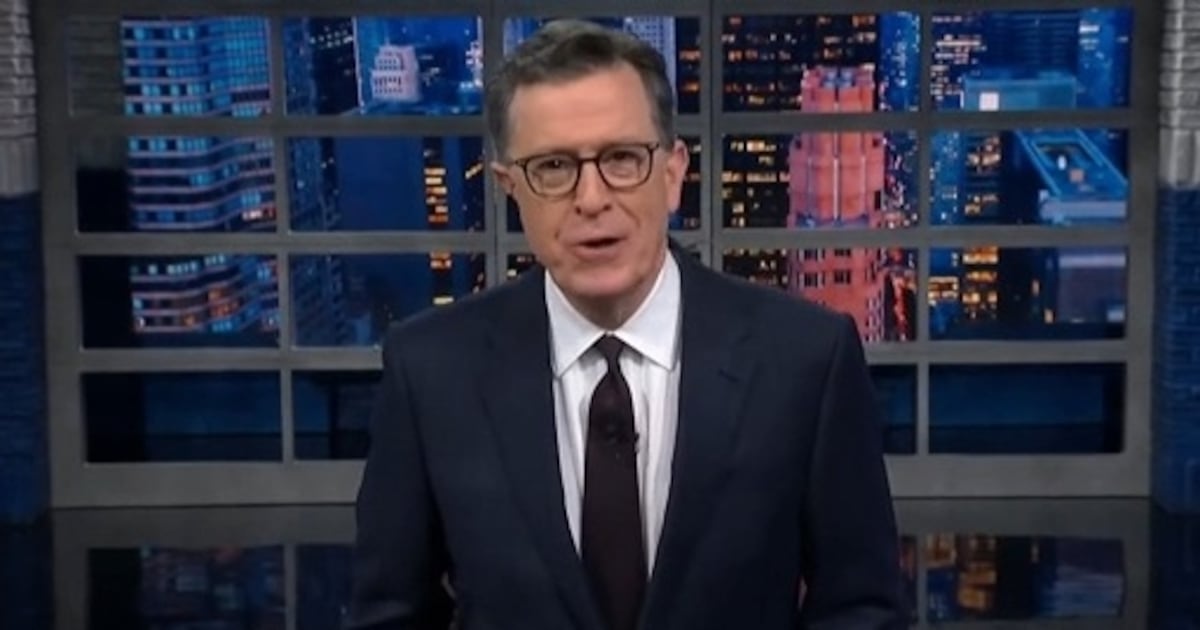George Clooney has spent over 20 years apologizing for Batman and Robin.
In 2015, while promoting another special effects-filled disaster, the movie star told talk show host Graham Norton that he “always apologizes” for the film, which premiered back in 1997. It was notoriously known as the movie that killed Batman on the big screen, until Christopher Nolan’s auteur-driven trilogy brought him back to life. (Now, it feels like we get a new Batman movie with every Olympics.)
“At the time, I thought it was going to be a very good career move,” Clooney told Norton. With his smoldering dark eyes locked in and without missing a beat, he added, “It wasn’t.”
Maybe it wasn’t the best career move, but Batman and Robin didn’t ding Clooney’s stardom. His industry stature has only continued to entrench itself since then, with the success of the entire Ocean’s trilogy, multiple Coen Brothers collaborations, several Oscar nominations (and a win), and a lucrative Nespresso deal hardly derailed by Clooney yelling “Freeze, Freeze!”
With Batman and Robin’s disastrous release far behind us all, Clooney’s finally ready to once again embrace the brand that once tainted his career. His recent surprise involvement with the latest DC project, The Flash, implies he’s finally finished with being sorry—and, truth be told, Clooney never had anything to be sorry about in the first place.
If this hasn't been spoiled for you already, The Flash is yet another multiverse-centric superhero blockbuster teeming with “cameos” from actors featured in DC’s cinematic past and present. We say “cameos,” because it’s frankly ghoulish to see some of them in execution, Like human taxidermy, long-deceased icons and former Superman(s) Christopher Reeve and George Reeves show up on screen like Hot Toys dolls, with a plastic sheen. By comparison, Clooney’s appearance (as Bruce Wayne) is dignified just by his being physically present.

In The Flash’s unique grasp of time travel, the past and present change, with reality influenced by other parallel worlds. (Believe me when I say it’s explained sort of brilliantly in exposition, via Michael Keaton’s mushy spaghetti.) At the end of the film, protagonist Barry Allen (Ezra Miller) attempts to restore the timeline as he knew it. But change still happens, including a new face for Bruce Wayne. No longer does Batman look like Ben Affleck, as Barry expects. Now he looks like George Clooney (again), whose cameo is sure to surprise anyone who isn’t on Reddit.
The whoops, hollers, and yells heard emanating from theaters following this reveal are genuinely surprising. This enthusiasm for Clooney’s 2023 return as Batman, however brief, stands in direct contrast with the historically bad reputation of Joel Schumacher’s 1997 movie, once voted to be the worst superhero movie of all time. The second Batman movie directed by Schumacher, the movie was eviscerated by critics and audiences alike over the movie’s overelaborate, over-the-top humor in a series that was once elegantly solemn. Despite taking number one at the box office its opening weekend, Batman and Robin fell sharply after to competitors like Disney’s Hercules and Men in Black and concluded its run as an unmitigated disaster.
But is it still the worst Batman film ever? Twenty-six years later, when cinema is just barely eking out an existence after a decade of billion-dollar superhero movies, Batman and Robin has somehow become the antithesis to everything wrong with today’s ascetic blockbusters. From overly grim reboots to Marvel’s own worn-out brand of insincere comedies with putrid visual effects and cinematography, Batman and Robin’s look is now preferable to the de facto modern superhero style, with its ostentatious designs and cranked up camp factor. Even if it isn’t good, Batman and Robin still knows how to have a lot of fun.
To be clear, there is a lot wrong with Batman and Robin. While Joel Schumacher was afforded greater creative control than in his previous 1995 film Batman Forever, which starred Val Kilmer as the Dark Knight, some studio intervention was apparently necessary to reign in his worser instincts. The movie overall is a baffling thing. Partners Batman and sidekick Robin (Chris O’Donnell) bicker throughout a nonsense plot, where Poison Ivy (Uma Thurman) forges an alliance with Mr. Freeze (Arnold Schwarzenegger) to take over Gotham City. Save for the late Michael Gough as Alfred, everyone in the cast comes across like kidnapped space aliens struggling to act like human beings, never mind comic book characters—and that includes Clooney.
In fairness, Schumacher had the unenviable task of following Tim Burton’s unique casting and vision for the Batman franchise. But to his credit, the director of The Lost Boys exhibited some of his own unique touches of gracefulness and romanticism—plus heaping doses of camp eroticism—that furthered our collective definition of who Batman is. Personally speaking, Batman Forever was the first movie I saw in theaters, and the image of a giant bat slowly flying in the dark left a deep imprint on my developing psyche.
Batman Forever offered tasteful glimpses of Schumacher’s artistry. But with Batman and Robin, the man let loose without limits, consequently creating a picture marinated in a cartoonish, sexually confused surreality. While it’s ostensibly a family movie to Schumacher, Batman and Robin is loaded with gratuitous close-up shots of sculpted rubber butts, and where Poison Ivy tells Batman she’s got “wild oats to sow.” Comparisons to the late-’60s Adam West series are more than apt: Early drafts of the script had Batgirl (played by Alicia Silverstone) shouting “Pow!” in her fight scenes.
So it’s a thing to behold when the receiving party of Poison Ivy’s hammy come-ons is the total stick-in-the-mud George Clooney. The actor’s performance as a plain-spoken adult, even when flashing a Bat-credit card, is miraculously complementary to the neon lunacy surrounding him. While Clooney is a distant third when compared to his predecessors of the cowl—he has neither the gloomy complexity of Michael Keaton nor the playboy swagger that Val Kilmer exuded—Clooney’s finely tuned onscreen charisma serves to ensure that Batman and Robin doesn’t totally collapse under the weight of its mania.
Batman and Robin is a garish and gaudy film. But now, it’s a treat to watch precisely for that reason. For hardcore comic book fans on the nascent internet circa ’97, however, it was offensive to their wishes that the medium be taken seriously.
In the 2016 book The Caped Crusade, journalist Glen Weldon highlights a perfect example of this. His work chronicles the evolution of modern fandom through the lens of Batman, including with regards to forums and movie blogs discussing the franchise. Once upon a time, Weldon writes, sites like the iconoclastic movie blog Ain’t It Cool News were the go-to source for the kind of fans that studios like Warner Bros. strove to please but struggled to reach. Which is why then-editor Harry Knowles’ review of Batman and Robin was so devastating. Knowles wrote to his readers that “nothing can prepare you for the sheer glorius [sic] travesty of the 200-megaton bomb” of Batman and Robin. “This film is so bad, so awful, so vanity ridden with horrible over the top performances, that nothing I can say can prepare you for it,” Knowles wrote.
But however strange Batman and Robin was to behold in 1997, in 2023, it’s a lot easier to embrace. With years of sedated studio tentpoles starring superheroes as asexual action figures, Batman and Robin’s sexual flamboyance and cinematic extravagance, with vibrant scenery and its onslaught of colors, has become compulsively watchable. Maybe it always has been.
That said, part of the joy of George Clooney’s quick return as Batman—or, more correctly, Bruce Wayne—is due to the cameo’s intentionally short shelf life. Based on what we know about the next Bat-reboot, The Brave and the Bold (to be helmed by The Flash director Andy Muschietti), new DC head honchos James Gunn and Peter Safran aren’t looking for a 62-year-old like Clooney to wear the cowl for the next decade. Instead, it’s a nudge to revisit Clooney’s past in the role and maybe like what you find more than you once did.

George Clooney as Batman in Batman and Robin.
Pictorial Press Ltd/AlamyBatman and Robin likely isn’t anyone’s favorite superhero movie, including Clooney’s. But it isn’t so bad that Joel Schumacher ought to have felt like he must “apologize to every fan,” as he told Vice in 2017, three years before his death at age 80. And with Batman and Robin undergoing a well-deserved reevaluation in recent years—for its 20th anniversary, David Sims of The Atlantic called it “a joy to watch now;” in 2019, David Crow of Den of Geek wrote that the movie “doesn’t deserve the bitter acrimony that is synonymous with its name”—it’s time that Clooney stops shouldering the blame for his then-maligned, one-time stint as Batman. Even if it’s for a gag, it’s time that we all embrace this so-called worst movie. If The Flash tells us anything, it’s that superhero movies could always be worse.






